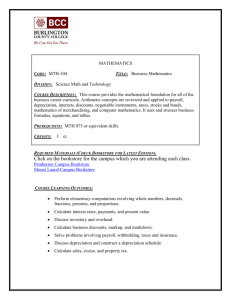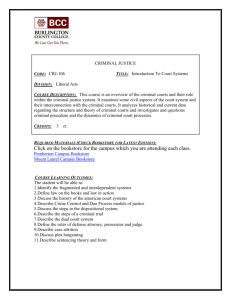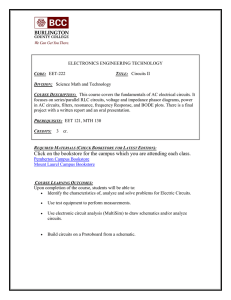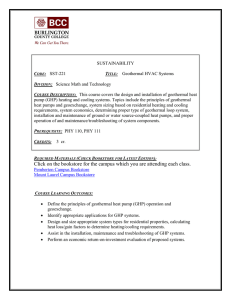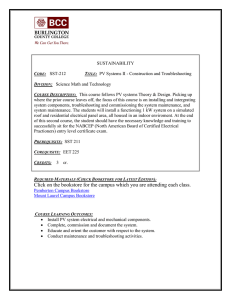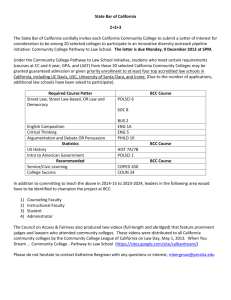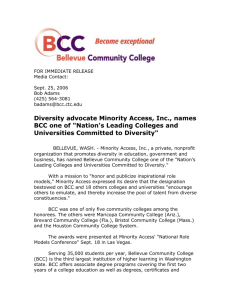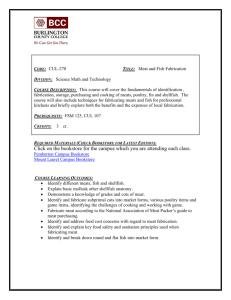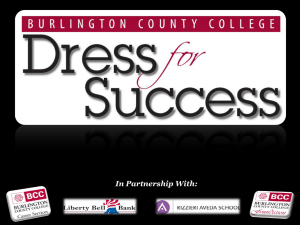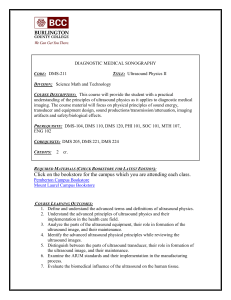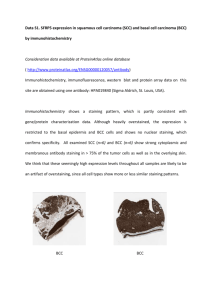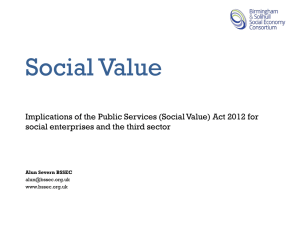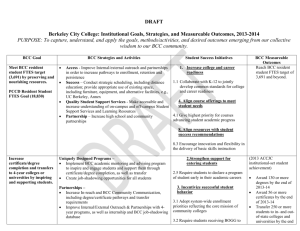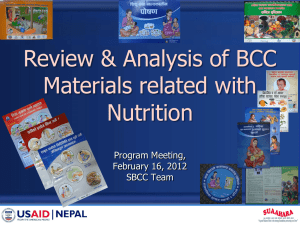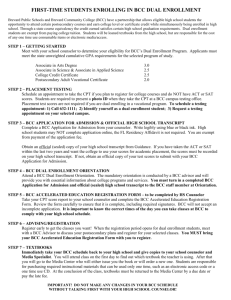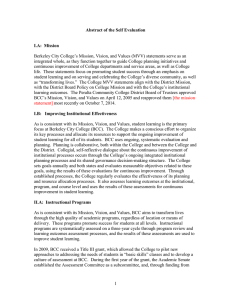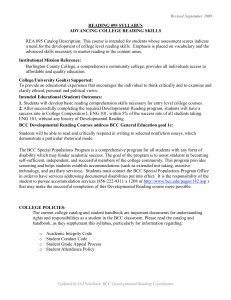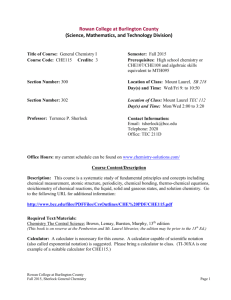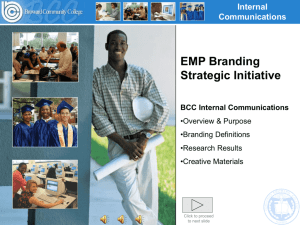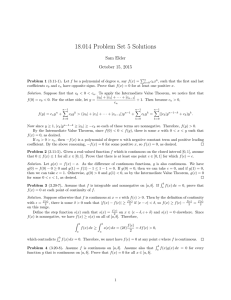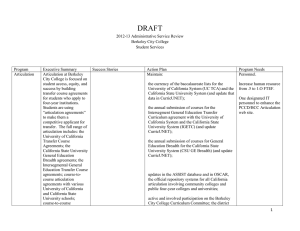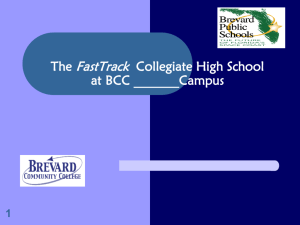ECO 204 - Rowan College at Burlington County
advertisement
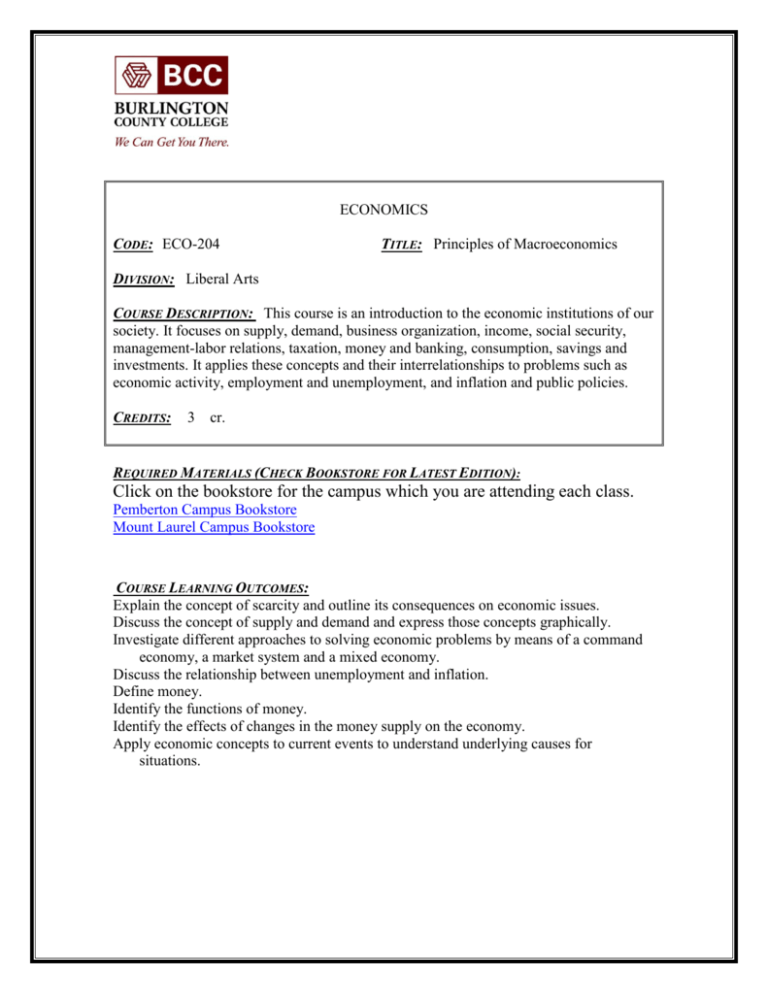
ECONOMICS CODE: ECO-204 TITLE: Principles of Macroeconomics DIVISION: Liberal Arts COURSE DESCRIPTION: This course is an introduction to the economic institutions of our society. It focuses on supply, demand, business organization, income, social security, management-labor relations, taxation, money and banking, consumption, savings and investments. It applies these concepts and their interrelationships to problems such as economic activity, employment and unemployment, and inflation and public policies. CREDITS: 3 cr. REQUIRED MATERIALS (CHECK BOOKSTORE FOR LATEST EDITION): Click on the bookstore for the campus which you are attending each class. Pemberton Campus Bookstore Mount Laurel Campus Bookstore COURSE LEARNING OUTCOMES: Explain the concept of scarcity and outline its consequences on economic issues. Discuss the concept of supply and demand and express those concepts graphically. Investigate different approaches to solving economic problems by means of a command economy, a market system and a mixed economy. Discuss the relationship between unemployment and inflation. Define money. Identify the functions of money. Identify the effects of changes in the money supply on the economy. Apply economic concepts to current events to understand underlying causes for situations. GENERAL EDUCATION OUTCOMES IN THIS COURSE: Written and Oral * Students will logically and persuasively support their Communication: Communication points of view or findings. * Students will communicate meaningfully with a chosen audience while demonstrating critical thought. Society and Human Behavior: Social Science * Students will conduct investigative research which demonstrates academic integrity, originality, depth of thought, and mastery of an approved style of source documentation. * Students will demonstrate a general knowledge of political, social and economic concepts and systems and their effects on society. TOPICAL OUTLINE FOR THE COURSE: The Nature and Method of Economics Graphs and Their Meaning The Economizing Problem Individual Markets: Demand and Supply Applications and Extensions of Supply and Demand Analysis The Market System The U.S. Economy: Private and Public Sectors The United States in the Global Economy Measuring Domestic Output & National Income Introduction to Economic Growth and Instability Basic Macroeconomic Relationships The Aggregate Expenditures Model Aggregate Demand and Aggregate Supply Fiscal Policy Money & Banking How Banks and Thrifts Create Money Monetary Policy COURSE ACTIVITIES: Course activities vary from course to course and instructor to instructor. Below is a listing of some of the activities students can anticipate in this course: Writing assignments: students will analyze current issues in the field using current articles from the popular press as well as library research including electronic resources databases. Speaking assignments: students will present research individually or in groups using current technology to support the presentation (e.g., PowerPoint presentation); students will participate in discussions and debates related to the topics in the lessons. Discussions may also focus on cross-cultural and legalethical dilemmas as they relate to the course content. Simulation activities: Trends and issues will analyzed for their ethical as well as social or legal significance. Students might role-play common situations for classmates to analyze. Current news articles may be used to generate discussion. Case Studies: Complex situations and scenarios will be analyzed in cooperative group settings or as homework assignments. Lectures: This format will include question and answer sessions to provide interactivity between students and instructor. Speakers: Representatives from various related fields may be invited to speak. Videos: Related topics will provide impetus for discussion. EDUCATIONAL TECHNOLOGY: Burlington County College advocates a technology enhanced teaching and learning environment. Advanced technological tools may be used in any course section to facilitate instruction. Many of our sections are web-enhanced, which means that some of your work will be submitted or completed online. Web enhancements may include online materials, grade books, testing and quizzes and assignment submission. Many students enjoy the flexibility and convenience that these online enhancements have provided, however if you have concerns about the technology involved, please speak to your instructor immediately. STUDENT EVALUATIONS: The student will be evaluated on the degree to which student learning outcomes are achieved. A variety of methods may be used such as tests, quizzes, class participation, projects, homework assignments, presentations, etc. See individual instructor’s course handouts for grading system and criteria (point value for each assessment component in course, e.g. tests, papers, presentations, attendance etc.), number of papers and examinations required in the course, and testing policy including make ups and/or retests. GRADING STANDARD: A B+ B C+ C D F Mastery of essential elements and related concepts, plus demonstrated excellence or originality. Mastery of essential elements and related concepts, showing higher level understanding. Mastery of essential elements and related concepts. Above average knowledge of essential elements and related concepts. Acceptable knowledge of essential elements and related concepts. Minimal knowledge of related concepts. Unsatisfactory progress. This grade may also be assigned in cases of academic misconduct, such as cheating or plagiarism, and/or excessive absences. For other grades, see the current BCC catalog. COLLEGE POLICIES: The current college catalog and student handbook are important documents for understanding your rights and responsibilities as a student in the BCC classroom. Please read your catalog and handbook as they supplement this syllabus, particularly for information regarding: Academic Integrity Code Student Conduct Code Student Grade Appeal Process NOTIFICATION: Burlington County College offers reasonable accommodations and/or services to persons with disabilities. The Special Populations Department offers comprehensive services to all students with any form of disability which hinders their academic success as long as the student provides appropriate documentation. Contact Special Populations at Extension 1208 at (609) 894-9311 or visit the website at: http://www.bcc.edu/pages/209.asp ADDITIONAL SUPPORT/LABS: BCC provides academic advising, student support personal counseling, transfer advising, and special accommodations for individuals with disabilities free to all students through the Division of Student Services. For more information about any of these services, visit the Parker Center on the Pemberton Campus or Laurel Hall on the Mt. Laurel Campus, or call (609) 894-9311 or (856) 222-9311, then dial the desired extension: - Ext. 1557 Academic Advisement and Counseling - Ext. 1803 Special Populations - Ext. 2737 Transfer Center Or visit the following websites: Academic Advising E-Advising Student Support Counseling Transfer Center http://www.bcc.edu/pages/206.asp http://www.bcc.edu/pages/219.asp http://www.bcc.edu/pages/274.asp?subdisp=1&subpar=206 http://www.bcc.edu/pages/185.asp BCC offers a free tutoring for all currently enrolled students. For more information regarding The Tutoring Center call Extension 1495 at (609) 894-9311 or (856) 222-9311 or visit the Tutoring Center Website at http://staff.bcc.edu/tutoring/ Annual Review 2011-2012 DS
